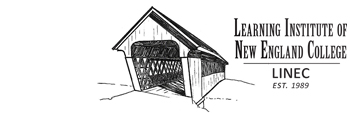B – Shakespeare: Richard III and The History of Troilus and Cressida
Tuesdays, 1:30 – 3:30 PM | April 2 – May 21
Location: Baker Free Library in Bow.
Instructor: Glenn Stuart | Facilitator: Don Melander
Gregory Doran’s casting of Arthur Hughes in the role of Richard III in the Royal Shakespeare’s 2022 production marks the first time that company cast an actor with a disability in that role. In 2022 Gregg Mozgala, the artistic director of the Apothetae (who also happens to have multiple sclerosis) commissioned Michael Lew to write a modern adaptation of Richard III. Mozgala had already determined that the play be entitled Teenage Dick and was to be set in a modern-day American high school. Further, he stipulated that the play would feature two actors with disabilities (himself and Shannon DeVito). In the first 5 weeks of class, we will screen Doran’s production as well as the 1995 feature film starring Ian McKellen. Also, we will read Teenage Dick. Central to our discussions of the play will be questions raised regarding language and attitudes regarding disability. In the final weeks, we will turn our attention to Troilus and Cressida, variously regarded as a history, a tragedy, a comedy, a problem play, a romance, or all or none of the above. We will screen the Royal Shakespeare Company’s 2018 post-apocalyptic production of this enigmatic and deeply troubling play.
Glenn Stuart is a Professor of Theatre Emeritus at New England College, where he taught for 38 years, designed 125 theatre and dance productions, and was founding director of the Open Door Theatre for which he designed and directed 20 productions, including King Lear, Hamlet, The Winter’s Tale, The Merchant of Venice, Much Ado about Nothing, As you Like It, The Tempest, and The Taming of the Shrew. He holds an MA in Theatre from the State University of New York, Albany, where he studied with Roger Herzel, Jack Burian, and Judith Barlow.
